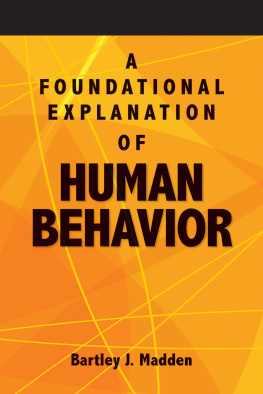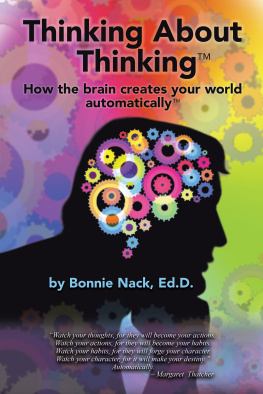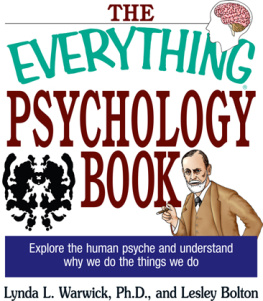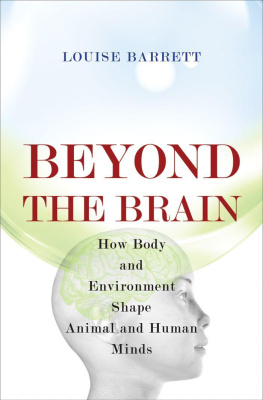2021 Bartley J. Madden Foundation
PO Box 110699
Naples, Florida 34108
All rights reserved.
No part of this publication may be reproduced, stored in or introduced into a retrieval system, or transmitted, in any manner whatsoever without the prior written permission of the author except in the case of brief quotations embodied in critical articles and reviews.
Printed in the United States of America.
ISBN: 978-0-9885969-8-6 (softcover)
ISBN: 978-0-9885969-9-3 (ebook)
INTRODUCTION
In the late 1960s, I began an intellectual journey that initially focused on improving my understanding of the connection between a firms performance and its market valuation. In 2020, my finance work culminated with Value Creation Principles: The Pragmatic Theory of the Firm Begins with Purpose and Ends with Sustainable Capitalism. A major takeaway of this book is that a firms knowledge-building proficiency primarily determines its long-term performance.
Over the same time period, I developed an ongoing passion for researching systems thinking, knowledge building, and human behavior (psychology). And more specifically, I have been promoting a structural reform of the FDA regulatory process through journal articles, op-eds, and my book Free to Choose Medicine: Better Drugs Sooner at Lower Cost , which was instrumental in Japans passage in 2014 of early, informed access to regenerative medicine drugsan application of systems thinking.
System thinkers, and other readers, might find useful the phrase fulcrum insight designating a stake-in-the-ground causal relationship which can deliver a substantial system improvement and is not context dependent. For FDA reform, the fulcrum insight is that clarity about the appropriate system goal plus elevating the key constraint equals substantial performance gains. The conventional goal of safe and effective drugs leads to a relentless demand for ever more expensive clinical testing demands, sky-high prescription drug prices, and, importantly, delayed access to life-changing medical treatments. I argue that the appropriate goal is better drugs, sooner, at lower cost. The key constraint is the hugely expensive (time and money) FDA clinical testing process.
In contrast to insights that can generate small incremental gains for a specified context, fulcrum insights can lead to large-scale value creation across many contexts. For example, Hernando de Soto cogently argues for a way to accelerate economic growth in the least-developed countries by formalizing legal property rights for houses, land, and businesses while minimizing bureaucratic obstacles to starting and running businesses. He explains: their assets are dead capital The poor inhabitants of these nationsfive-sixths of humanitydo have things, but they lack the process to represent their property and create capital. They have houses but not titles; crops but not deeds; businesses but not statutes of incorporation. De Sotos fulcrum insight would create capital for those most in need while also enabling them to be value creators and participants in the global capitalistic system.
My current project is to craft a book about improving system performance that plows new ground compared to Value Creation Principles. These two books (and related upcoming videos) will offer business schools an educational package for use in class or as part of an open online course. The working title for the new book is Fulcrum Insights: How You Can Generate Big Ideas to Elevate System Performance. This book is in the initial stage of research/writing and will have seven chapters that correspond to the seven steps to improve performance as outlined in Figure 1.
Figure 1:
A systematic approach to improving system performance

The above seven steps differ from performance improvement approaches described in many popular books on management, innovation, and creativity. In contrast to the frequently encountered new management idea that soon becomes a fad, these seven steps represent a systematic thinking process to be used in all contexts. Moreover, the explanatory chapters will provide novel ideas, document relevant academic thinking, and illustrate tie-ins to real-world system improvements, especially in business. The best tools for those who begin a journey to use and improve the ideas distilled into the above seven steps are curiosity, skepticism, imagination, humility, perseverance, and a passion for pragmatism.
A Foundational Understanding of Human Behavior addresses Step 1. I hope to convince you to adopt Perceptual Control Theory (PCT) as the foundational explanation of human behaviorwhy we act in the ways we do. Over many years, I have studied myriad PCT books and journal articles. As questions concerned me, I have been fortunate to get answers from the leading researchers, including Bill Powers who first developed PCT. The book in your hands analyzes the work of Bill Powers and his colleagues in developing PCT and shows its wide application.
Many readers currently view human behavior as responses to stimuli (e.g., carrots-and-sticks management approach often seen in business and a form of behaviorism) and/or believe that our brain plans in detail with incredible speed every action to deal with disturbances in the environment, i.e., cognitive psychology. In this book, a strong case is made that these approaches are decidedly inferior to PCT.
We human beings live purposeful lives which can easily be ignored with a stimulus-response approach to understanding human behavior. Due to a continual stream of environmental disturbances, actions are varied in order to cancel the effects of these disturbances on our perceptions of controlled (important to our goals) variables. PCT provides a fundamental fulcrum insight: behavior is the control of perception. The purpose of this book is to get you comfortable with this insight and excited about putting it to practical use.
. Bartley J. Madden. 2020. Science on FDA Liberalization: A Response to the Status Quo Process for Medical Treatments. Econ Journal Watch 17(1): 9097. This article explains how Free to Choose Medicine would accelerate innovation to the benefit of patients in any country that currently relies on an FDA-type regulatory system.
. See the discussion of Eli Goldratts Theory of Constraints in Bartley J. Madden. 2020. Value Creation Principles: The Pragmatic Theory of the Firm Begins with Purpose and Ends with Sustainable Capitalism . Hoboken, NJ: John Wiley & Sons, Chapter 3.
. Hernando de Soto. 2000. The Mystery of Capital: Why Capitalism Triumphs in the West and Fails Everywhere Else . New York: Basic Books, pp. 67.
A
FOUNDATIONAL EXPLANATION
OF
HUMAN BEHAVIOR
You [William T. Powers] did not invent the [negative feedback] loop. It existed in a few mechanical devices in antiquity, and came to engineering fruition when electrical devices became common. Some psychologists even wrote about feedback. But the manner in which living organisms make use of the feedback loopor I could say the manner in which the feedback loop enabled living creatures to come into beingthat insight is yours alone. That insight by itself should be sufficient to put you down on the pages of the history books as the founder of the science of psychology.
Philip J. Runkel
MAINSTREAM PSYCHOLOGY IGNORES PERCEPTUAL CONTROL THEORY (PCT)
The type of system addressed in my forthcoming book, Fulcrum Insights, entails coordinated activities in which people work to achieve a specified goal or purpose. This can range from a small team to a large, complex organization. Systems involve people on the inside and on the outside (e.g., a manufacturing plant and its outside suppliers or a classroom using books written by outside authors). Moreover, management may have divergent views of how to make changes in order to improve performance. Is it not reasonable that a prerequisite to system analysis should be clarifying why we act in the ways we do? I believe this is one of those patently obvious ideas. So much has been written about performance improvement that intimately involves people, but totally absent, or inadequately treated, is a foundational explanation of human behavior.







